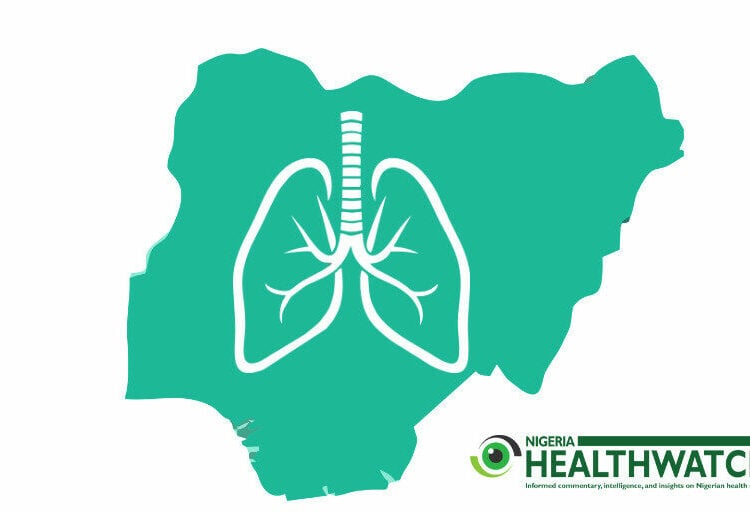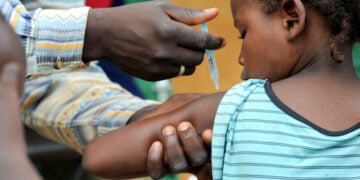Tuberculosis (TB), one of the world’s oldest and deadliest infectious diseases, continues to claim tens of thousands of Nigerian lives each year despite being preventable and curable.
In 2023 alone, Nigeria recorded 71,000 TB-related deaths, ranking first in Africa and sixth globally among high-burden countries, according to the 2024 World Health Organisation (WHO) Global TB Report.
An estimated 499,000 new TB cases were recorded in 2023, representing nearly 20 per cent of Africa’s TB burden and 18 per cent of the continent’s TB deaths. While free TB testing and treatment are available nationwide, thousands remain undiagnosed or start treatment late, fueling community transmission.
Despite the alarming figures, health officials insist progress is being made. The Director of Public Health at the Federal Ministry of Health, Dr. Godwin Ntadom, revealed that Nigeria achieved its highest-ever TB case notification in 2024, identifying more than 400,000 cases, equivalent to 79 per cent treatment coverage.
Children, who often suffer undiagnosed TB, are also being reached in greater numbers. Pediatric TB case notifications jumped from 8,293 in 2018 to 43,000 in 2024, he said.
However, Ntadom acknowledged that drug-resistant TB (DR-TB) remains a major obstacle. “A substantial number of undiagnosed cases continue to fuel transmission. Low enrollment into treatment programmes for DR-TB is a growing concern,” he said.
To bridge detection gaps, the federal government recently launched a wave of technological interventions. Coordinating Minister of Health and Social Welfare, Prof. Muhammad Ali Pate, announced the deployment of 400 artificial intelligence (AI)-powered mobile digital X-ray units across Nigeria’s 36 states and the FCT.
“These units, operated by trained radiographers, are enabling us to detect asymptomatic TB cases that would have been missed,” Pate explained.
The government has also expanded access to rapid molecular testing. Between 2012 and 2024, the number of GeneXpert machines rose from 32 to 513, Truenat machines from 39 to 372, and TB-LAMP equipment from 52 to 275. Likewise, the number of TB treatment centres has nearly doubled from 12,606 in 2019 to about 23,000 in 2024, covering over half of all health facilities nationwide.
While technology is improving detection, Nigeria’s TB response faces a serious funding gap. The country has historically relied heavily on donor agencies, with USAID alone previously supporting nearly half of all detected TB cases. But recent cuts to U.S. funding have left Nigeria scrambling for alternatives.
Acting Board Chair of Stop TB Partnership Nigeria, Dr. Queen Ogbuji-Ladipo, warned that the fight against TB is “at a critical juncture.”
“As donor support declines, Nigeria must intensify domestic resource mobilization. Without increased local funding, the progress we’ve made will be reversed,” she said.
The federal government insists it is not backing down. Pate reaffirmed Nigeria’s commitment to WHO’s End TB Strategy, which aims to eliminate TB globally by 2030. He highlighted community-based screening, private sector engagement, and integration of TB care into primary healthcare as key strategies moving forward.
First Lady Senator Oluremi Tinubu has also stepped forward as Africa Regional and Global TB Champion. Through her Renewed Hope Initiative, she recently donated molecular diagnostic machines to underserved communities, fulfilling a N1 billion pledge made in 2024.
“Tackling TB is not just about drugs and machines, it requires political will, financial investment, and community mobilisation,” she said while commissioning new diagnostic equipment in Abuja.
Her intervention, praised by health officials as a “game changer,” is expected to boost detection of drug-resistant TB strains, helping break chains of transmission.
Despite these efforts, the reality remains sobering: Nigeria still accounted for 4.6 per cent of global TB cases in 2023. Many Nigerians, especially in rural areas, continue to die without ever receiving a diagnosis. Occasional stockouts of drugs and test kits, combined with weak health-seeking behaviour, further complicate the situation.
Experts stress that ending TB in Nigeria requires not just medical innovation but also sustained advocacy, increased domestic financing, and greater public awareness.
Nigeria is signaling determination to end the epidemic within the decade. But success hinges on whether government, private sector, civil society, and communities can rally resources and commitment.





